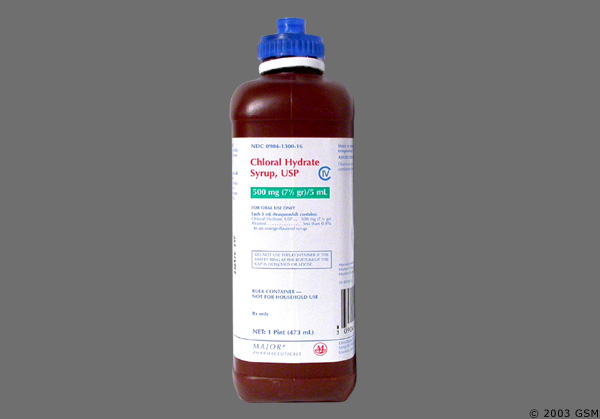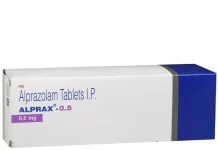Chloral hydrate syrup is a medication with sedative and hypnotic properties. It is primarily used for short-term sedation or as a pre-anesthetic before medical procedures. However, its use has declined over the years due to safety concerns and the availability of alternative medications. Chloral Hydrate Syrup Benefits and Symptoms Side Effects

Benefits:
Sedation: Chloral hydrate syrup is used for its sedative effects, making it helpful in inducing sleep or calming patients before medical procedures.
Pre-anesthetic: It can be used as a pre-anesthetic to help relax patients before surgery.
Side Effects:
Gastrointestinal Distress: Common side effects of chloral hydrate syrup include nausea, vomiting, and abdominal discomfort. Taking the medication with food or milk may help reduce these symptoms.
Drowsiness and Dizziness: Chloral hydrate can cause drowsiness and dizziness, affecting alertness and coordination. Caution is advised when engaging in activities requiring mental focus, such as driving.
Respiratory Depression: High doses of chloral hydrate can depress the respiratory system, leading to slowed or shallow breathing. This risk is higher when the medication is used in excess or in combination with other central nervous system depressants, such as alcohol.
Hypersensitivity Reactions: Some individuals may experience allergic reactions, including skin rash, itching, or swelling.
Tolerance and Dependence: Prolonged use of chloral hydrate can lead to the development of tolerance, where higher doses are needed to achieve the same sedative effects. It can also result in physical dependence, and abrupt discontinuation may lead to withdrawal symptoms.
Paradoxical Reactions: In some cases, chloral hydrate can cause paradoxical reactions, leading to increased agitation, anxiety, or confusion instead of sedation.
Overdose Risk: Overdose on chloral hydrate can be serious and may lead to life-threatening complications. Signs of overdose include extreme drowsiness, difficulty breathing, and loss of consciousness.
Liver Toxicity: Long-term use of chloral hydrate has been associated with liver toxicity, which can be a concern, particularly in individuals with pre-existing liver conditions.
Due to the side effect profile and the availability of safer alternatives, chloral hydrate syrup is not commonly used in current medical practice. It is essential to use this medication under the close supervision of a healthcare professional, and its use should be limited to situations where other options are not suitable.
Always follow the prescribed dosage and instructions provided by your healthcare provider and seek medical attention if you experience any concerning side effects.
Chloral Hydrate Syrup Benefits and Side Effects Chloral Hydrate Syrup in hindi Chloral Hydrate pill Chloral Hydrate tablet Chloral Hydrate MADICINE Chloral Hydrate Syrup in hindi Chloral Hydrate pill Chloral Hydrate tablet Chloral Hydrate MADICINE






